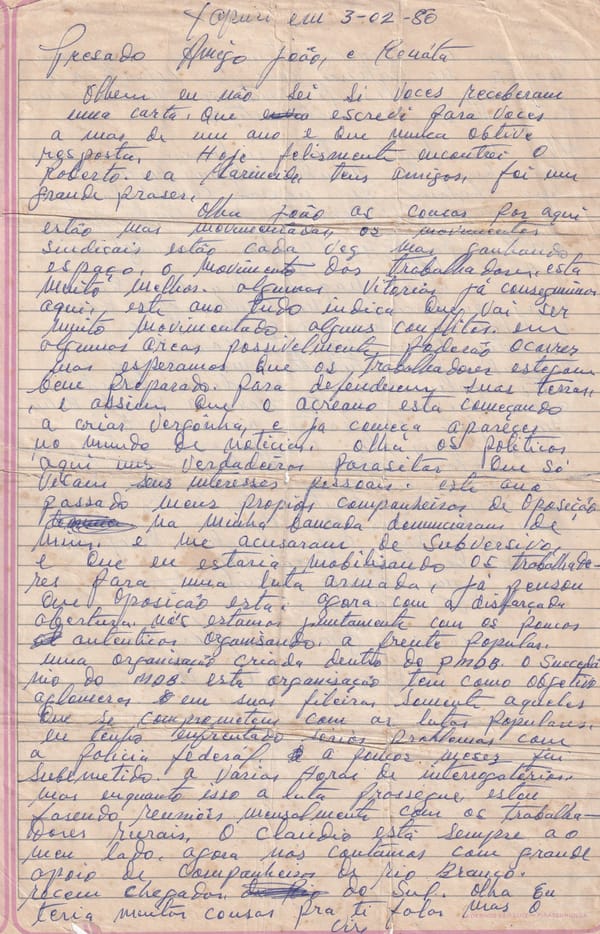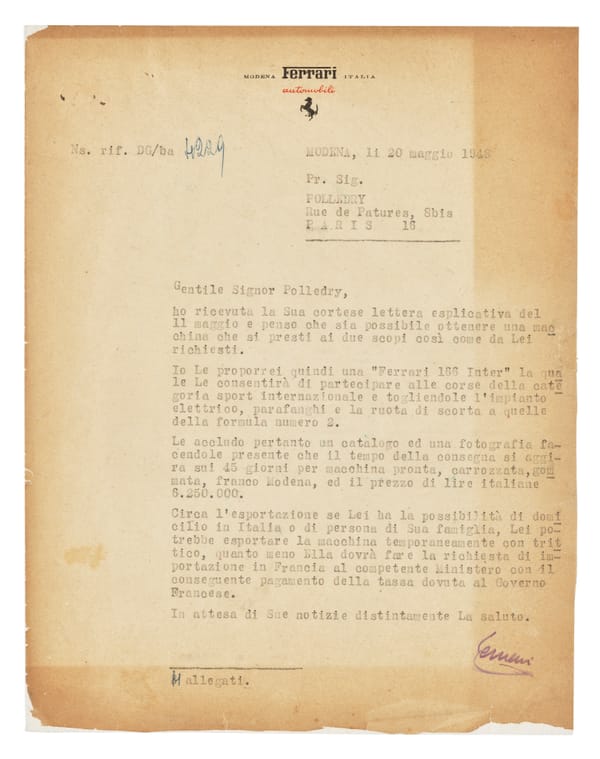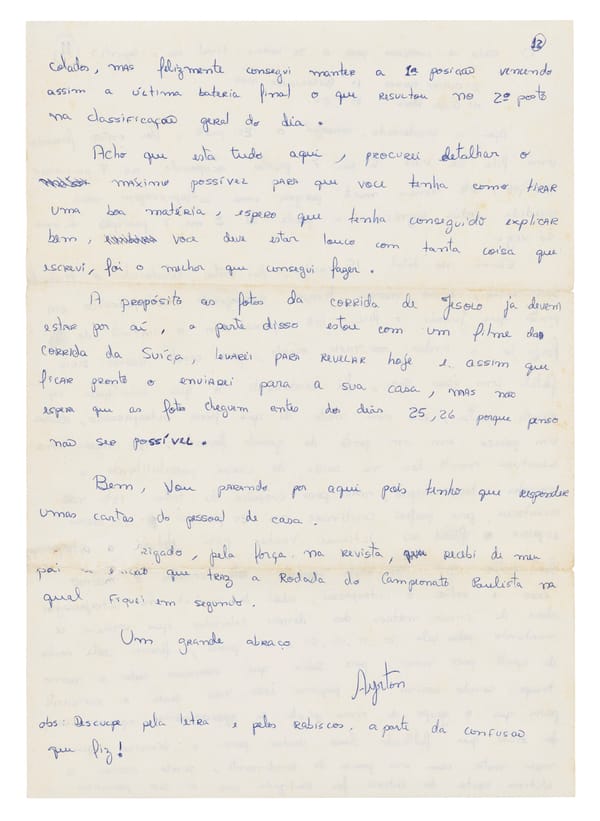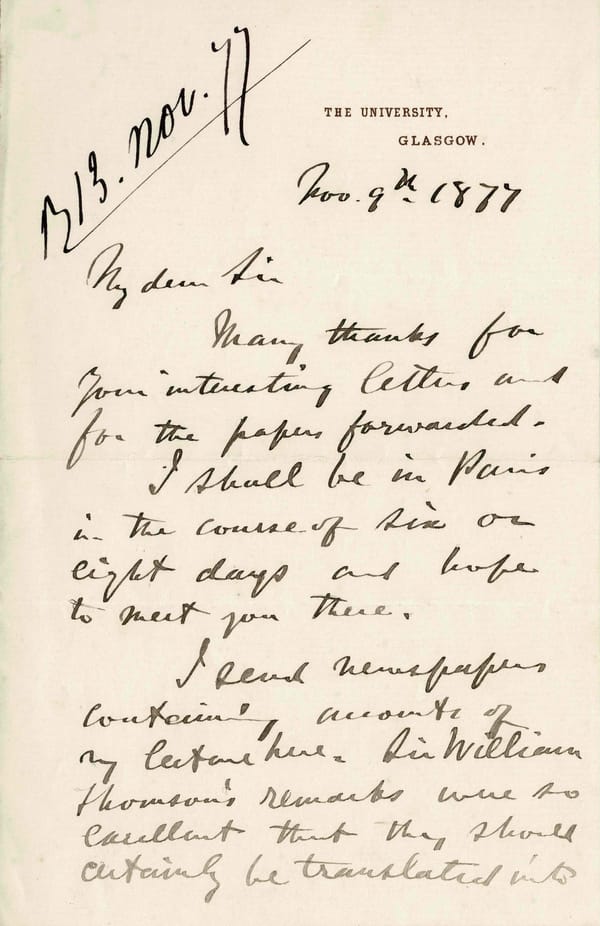A surprising letter from Pelé, beyond soccer
In 1998, Pelé pens a candid letter blending surreal travel tales, critiques of post-Soviet chaos, and bold takes on Korean history, revealing the man behind the myth: curious, blunt, and unexpectedly political.
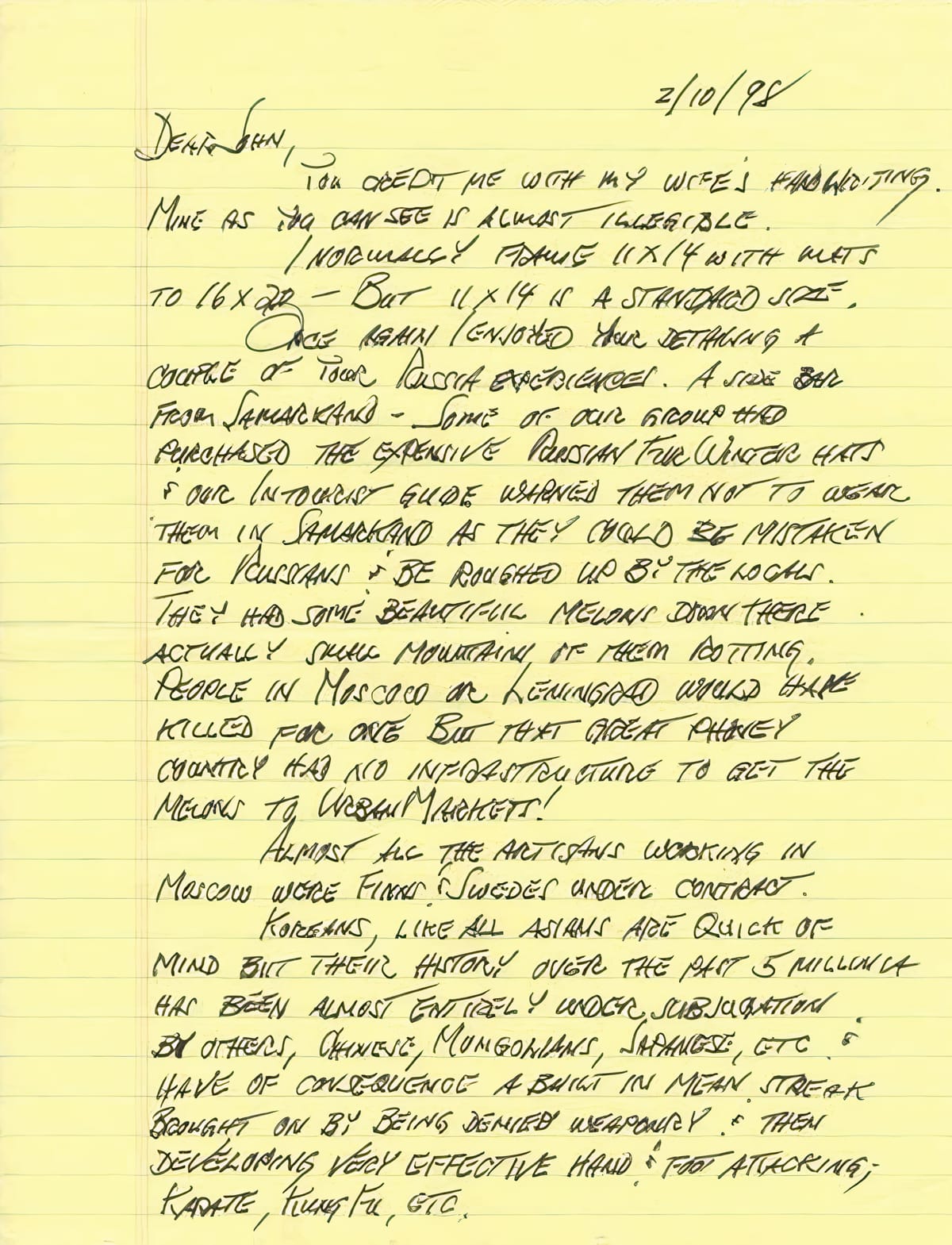
On yellow letterhead dated October 10, 1998, Pelé - not in a stadium, but in the role of Brazil’s Minister of Sports - recounts to a friend at the IMF a surreal scene:
Once again I enjoyed your detailed accounts of your experiences in Russia. (...) Some members of our group bought those expensive Russian fur hats for the winter, but our tour guide warned us not to wear them in Samarkand, as we could be mistaken for Russians and beaten up by the locals. They have beautiful melons there. In fact, small mountains of them rotting away. People in Moscow or Leningrad would kill for one, but that vast [illegible] country had no infrastructure to transport the melons to urban markets! Almost all the craftsmen working in Moscow were Finnish and Swedish under contract.
When I first read this letter, written entirely in English and signed by Pelé himself, I was struck by his observations. He had just returned from Eastern Europe, where, alongside a Brazilian delegation, he witnessed the deep dysfunction left by Soviet central planning. Their tour guide warned against wearing Russian fur hats in Uzbekistan, lest they be mistaken for Russians and attacked. What began as light travel notes swiftly turned into sharp reflections on the region’s political scars.
Most surprisingly, Pelé digresses into cultural anthropology, offering a provocative take on Korean history:
Koreans, like all Asians, are quick-minded, but their history over the last 5 [million?] years has been one of near-total subjugation by others, Chinese, Mongols, Japanese, etc. As a result, they developed fierce characters, perhaps due to being denied access to weapons, and thus created very effective hand-and-foot combat techniques: Karate, Kung Fu, etc. This, combined with any brutal communist government, made North Korea far worse. But the average Korean is by far more emotional than other Asians. In this way, they are a piece of an enigma, a step beyond Kipling’s apt description of the Oriental.
The tone is frank, perhaps too much so for today’s sensibilities and all the more striking given the enduring clichés surrounding Pelé, especially in Brazil. But that’s precisely what makes this piece so rare. In a market flooded with bland autographs and perfunctory inscriptions, this two-page letter stands apart. It’s not the footballer, but the man behind the myth, curious, candid, and unexpectedly political.
Are you a publisher, a museum, a dealer, an auction house, or a private collector with a document you believe to be important? Write to us and send it in — we’ll analyze it and get back to you promptly: info@historyonpapers.com

